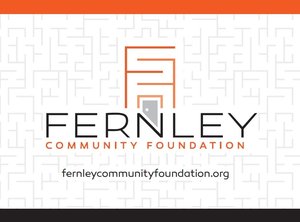Deaths of Breonna Taylor, George Floyd help shape attorney general’s legislative agenda
By Ray Hagar, Nevada Newsmakers
“History will remember 2020 as the perfect storm of disruptive events,” Nevada Attorney General Aaron Ford wrote in a recent edition of Nevada Lawyer magazine.
He said on Nevada Newsmakers that his office will focus on two bills that are a result of that storm during the current session of the Nevada Legislature.
The first is a proposal to severely limit use of “no knock” arrest warrants, which allow police to enter a home without immediate prior notification, like knocking on the door, Ford told host Sam Shad.
The second is a bill that would allow Ford’s office to investigate “pattern or practice” of law enforcement’s systematic practices.
“If there is a contention that a particular law-enforcement agency stops and frisks black citizens or brown citizens more than they do their counterparts, then that could be a pattern or practice that needs to be addressed and remedied,” Ford explained.
Ford said his “no knock” proposal was inspired by the death of Breonna Taylor, who was fatally shot in Louisville, Ky., after police broke down her door without knocking in the middle of the night.

“I view it as an opportunity to address issues on a proactive basis in our state,” Ford said. “To be sure, it is reactive in the sense that we saw what happened to Breonna Taylor in Kentucky and what we don’t want to see that happen in our own state.”
Ford referenced George Floyd in his Nevada Lawyer article about his “pattern or practice” bill. Floyd died while he was being detained by Minneapolis police and one officer knelt on his neck for more than eight minutes, according to multiple reports. Floyd’s death led to a wave of national protests and some riots.
“The pattern-or-practice investigation will allow us to determine whether in fact an instance of unlawful policing is the case of one individual, or whether there is something inherent in the training or culture of an agency that has facilitated unlawful behavior by a law enforcement officer,” Ford wrote in Nevada Lawyer.
A “pattern or practice” investigations are civil in nature, not criminal, according to the Washington Post. They aim at systemic problems, not individual officers.
A similar bill is now before Congress called the George Floyd Justice in Policing Act. It aims to combat police misconduct, excessive force, and racial bias in policing. A George Floyd Justice bill recently passed the House and passed in the House in 2020 but not been approved in the Senate.
The federal government already can already investigate “pattern or practice,” Ford said. However, former U.S. AG William Barr refused to carry out such an investigation into Floyd’s death, Ford said. The potential of federal inaction is a reason why Ford wants the state to have the power of a “pattern or practice” investigation.
“Even if the U.S. Department of Justice were to resume exercising its pattern-or-practice authority, there are other reasons to pass this bill on the state level,” Ford wrote in Nevada Lawyer. “One of the shortcomings of the federal authority is the lack of subpoena power tied to the investigatory power. If an agency declines to cooperate, the DOJ is limited in its ability to effectively gather information. Furthermore the Nevada Attorney General’s Office is much more familiar with the people and agencies of our state than the federal government.”
Ford introduced his “no-knock” legislation last week at the Legislature before the Senate Judiciary Committee. Under SB50, the tactic would be allowed only for certain situations but would be banned for misdemeanors, drug-possession and property crimes, Ford told the committee.
Law enforcement in Nevada currently uses “no knock” warrants very rarely, Ford told Shad. Yet he fears that could change when administrators who oversee Nevada law enforcement agencies also change.
“I looked around to see what our practices were in our state. And to our law enforcement agencies’ credit, they don’t engage in no-knock warrants on a frequent basis,” Ford said. “In fact, with our largest organizations, the last times they ever used them was years ago. So that is great and kudos to them.
“But the issue I’m concerned about, is that with the change in (law enforcement) administration, could come a change in practice,” Ford said. “And right now, the restrictions on the use of no-knock warrants is purely because of policy within the local law enforcement agency. So we need to put into law, the best practices of no-knock warrants, to make it the policy of the state. That is the purpose of the bill.”
The Senate Majority Leader Nicole Cannizzaro and Senate Judiciary Chair Melanie Scheible are both employees of the Clark County District Attorney. Ford, however, said their employment has no bearing on the any legislation he would propose. The question arose in last year’s special session when some reforms did not pass.
“I don’t have that concern,” Ford said, a former state Senate Majority Leader. “I know these people. Just because it (reform) was stymied doesn’t mean it was only because of one individual.
“To be sure, some individuals have more power than others but the truth of the matter is that I have worked in that building (Legislature) over the course of the years,” he added. “I have been the leader of the senate chamber and I myself had to kill bills that I thought were appropriate for purposes of criminal justice reform because I could not find the practical approach of those policies. So I don’t have a concern about that. I think it is frankly unfair to impute the policies of an employer on to a particular senator or Assembly person.”




